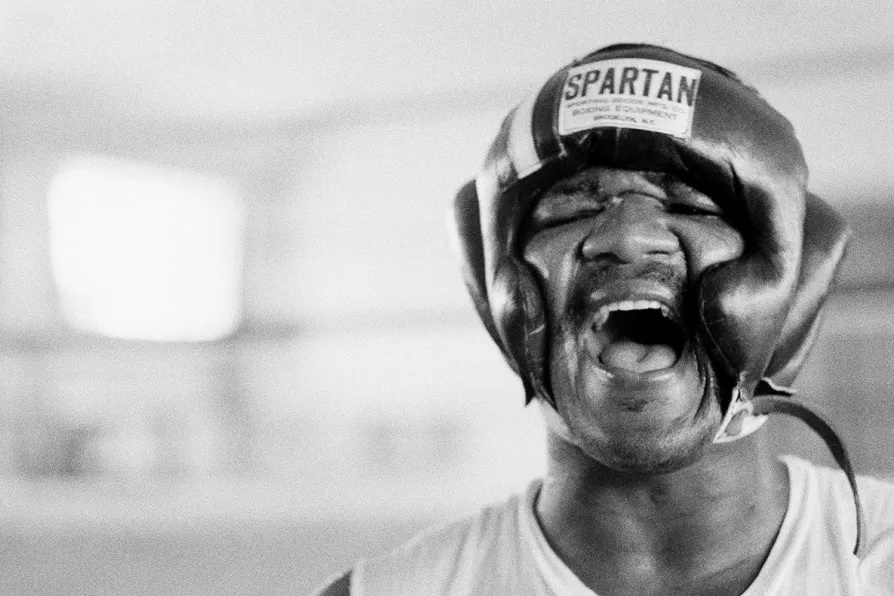
 George Foreman yells, October 15, 1974, in N'Sele, Kinshasa, Zaire
George Foreman yells, October 15, 1974, in N'Sele, Kinshasa, Zaire
A MIGHTY oak has fallen.
On a certain level it could be argued that George Foreman, who died last week at age 76, spent his entire adult life in boxing and beyond as the man who lost to Muhammad Ali in 1974 in Zaire (Democratic Republic of the Congo) in the most epic heavyweight contest ever to take place.
Known to the world and to sports history as “The Rumble in the Jungle,” Foreman filled the role of villain relative to Ali’s sheriff in the eyes of a world desperate for something to believe in as the Vietnam war stuttered on in a post-colonial age. Where before Ali had filled the former role over his stance in opposition to Vietnam, by 1974 he’d been reborn as a fighter-philosopher revered the world over.

JOHN WIGHT tells the riveting story of one of the most controversial fights in the history of boxing and how, ultimately, Ali and Liston were controlled by others













